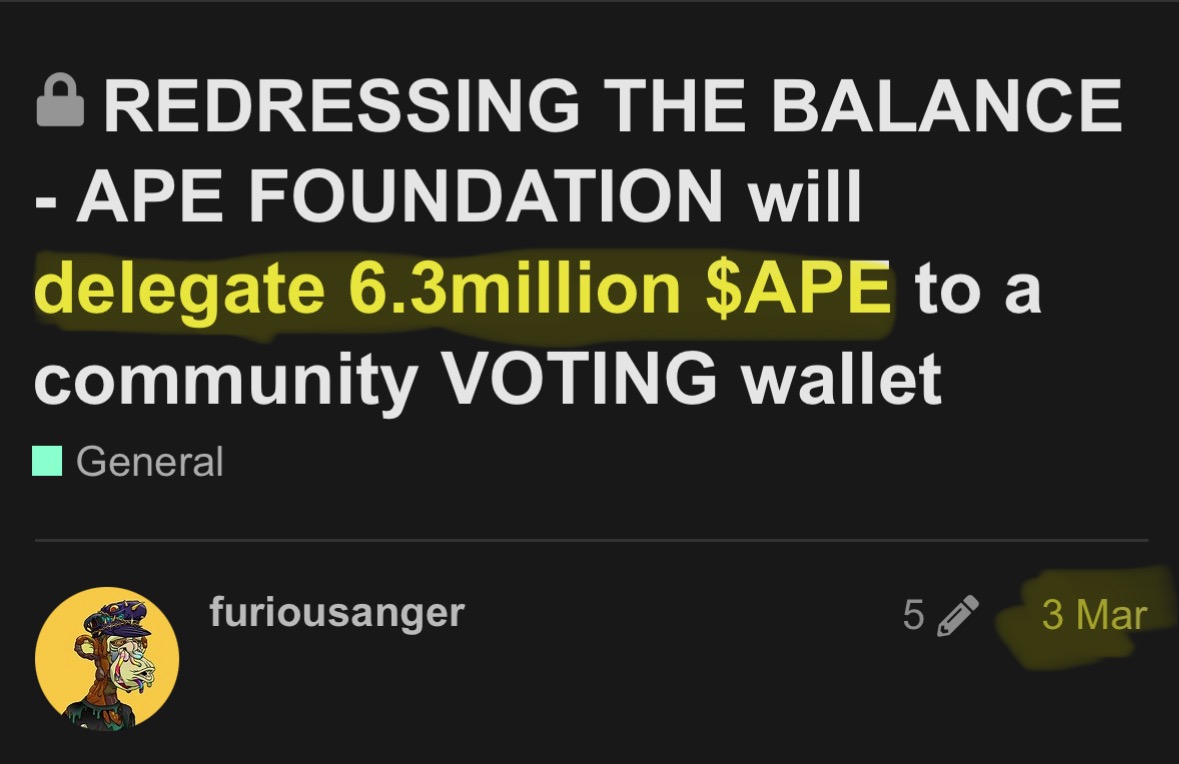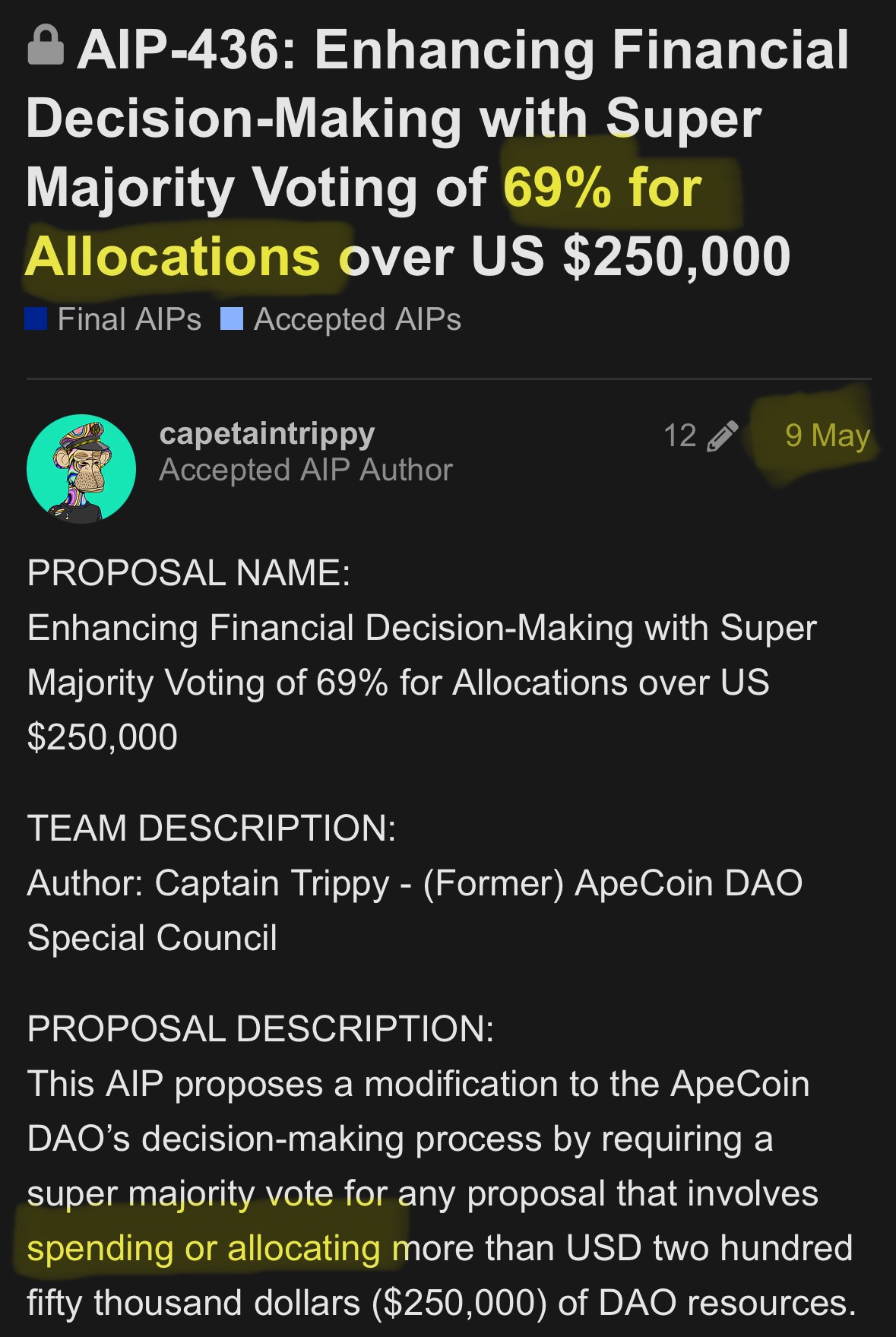Hello again ApeCoin Community ![]()
We’re excited to share some important updates in our ongoing efforts to support the community.
Here are the latest developments:
Ethereum-Based Token Returns 
We are pleased to announce that Ethereum-based assets and gross revenue may be returned directly to the DAO in a permissionless process using a recently created wallet address.
The designated wallet address for these transactions is: 0x5AC40A1175715F1c27e3FEAa8C79664040717679.
We anticipate that the Foundation may use an ENS address to simplify identifying this wallet at some time in the future, any further updates will be posted for the community as the details become clear.
Tranche Funding 
In an effort to increase clarity around proposed costs, content, and the implications for the DAO, if you’re an AIP author requesting a grant in excess of $100,000 please be prepared to structure your request for funding in tranches (or milestone-based disbursements) when drafting your AIP. Don’t worry if you’re not quite sure about the best way to set this up, the Facilitator team will be happy to help guide you through the process.
Voting Implications for AIP-436 
AIP-436 has been approved by the DAO, which establishes that any AIP requesting more than $250,000 USD would require a super-majority “For” vote of 69% or more in order to pass. For proposals with requests in $APE, a USD-value determination would be made once the proposal is reviewed and before it goes to vote. In these cases, the AIP’s Overall Cost section and Snapshot entry would reflect both the requested value in $APE, as well as in USD.
Locked Tokens and Token Delegation Proposals 
The treasury may delegate locked tokens for voting purposes. Proposals seeking to establish delegations using locked tokens from the treasury may indicate a “zero-cost” as these funds would not leave the treasury, additionally, these proposals would require a finite delegation time frame after which all tokens are to be fully “returned.”
AIP implementation is administered by the Ape Foundation. Implementation may be materially altered to optimize for security, usability, to protect APE holders, and otherwise to effect the intent of the AIP. Any material deviations from an AIP, as initially approved, would be disclosed to the APE holder community.
The BANANA Bill Intake Form 
The BANANA BILL is here to give apes another opportunity to eat !
Following the DAO’s approval of The BANANA Bill, we are excited to share that the BANANA Bill application form is open and applications are already rolling through the process!
You can access the application form here: apechain.com/banana-bill
In an ongoing commitment to bolster the development of APECHAIN, the Foundation has also begun to provide support for the Official APECHAIN Telegram Channel as of exactly one month ago today!
If you haven’t already, join the ape community in our newest official communication channel:
APECHAIN Telegram
See you there!
-ApeCoin DAO Community Discourse Facilitators






